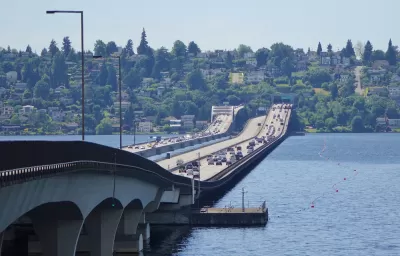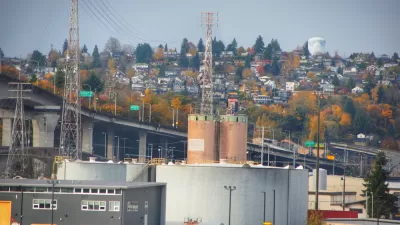After underestimating costs by hundreds of millions, Seattle is forced to cut back on proposed seismic improvements for the city's bridges.

The West Coast, nervously awaiting the catastrophic earthquake dubbed the "Big One," has spent years investing in improved earthquake safety and retrofitting infrastructure to withstand seismic destruction. Seattle promised to improve 16 of its bridges with modern earthquake safety mechanisms, but, after realizing it underestimated costs by hundreds of millions of dollars, the city is scaling back the work to only 11 bridges.
After reevaluating proposed costs for the bridge projects, the city realized it had vastly underestimated project costs and had received less than a tenth of the $37 million in federal grants and outside funding that they hoped would go toward seismic retrofitting. The expenses for the projected bridge work grew exponentially as engineers began analyzing the bridge foundations and surrounding soils. Improvements to the First Avenue South bridge, for example, jumped from $4 million to over $250 million, creating a huge gap in funding.
To move forward, the Seattle Department of Transportation plans to remove the most expensive bridges from its immediate plan and execute the work on others. The agency is drafting a new plan to address all of the city's bridges, slated to be ready by 2023.
FULL STORY: Seattle scales back earthquake work on city bridges as costs soar

Alabama: Trump Terminates Settlements for Black Communities Harmed By Raw Sewage
Trump deemed the landmark civil rights agreement “illegal DEI and environmental justice policy.”

Planetizen Federal Action Tracker
A weekly monitor of how Trump’s orders and actions are impacting planners and planning in America.

The 120 Year Old Tiny Home Villages That Sheltered San Francisco’s Earthquake Refugees
More than a century ago, San Francisco mobilized to house thousands of residents displaced by the 1906 earthquake. Could their strategy offer a model for the present?

In Both Crashes and Crime, Public Transportation is Far Safer than Driving
Contrary to popular assumptions, public transportation has far lower crash and crime rates than automobile travel. For safer communities, improve and encourage transit travel.

Report: Zoning Reforms Should Complement Nashville’s Ambitious Transit Plan
Without reform, restrictive zoning codes will limit the impact of the city’s planned transit expansion and could exclude some of the residents who depend on transit the most.

Judge Orders Release of Frozen IRA, IIJA Funding
The decision is a victory for environmental groups who charged that freezing funds for critical infrastructure and disaster response programs caused “real and irreparable harm” to communities.
Urban Design for Planners 1: Software Tools
This six-course series explores essential urban design concepts using open source software and equips planners with the tools they need to participate fully in the urban design process.
Planning for Universal Design
Learn the tools for implementing Universal Design in planning regulations.
Clanton & Associates, Inc.
Jessamine County Fiscal Court
Institute for Housing and Urban Development Studies (IHS)
City of Grandview
Harvard GSD Executive Education
Toledo-Lucas County Plan Commissions
Salt Lake City
NYU Wagner Graduate School of Public Service




























